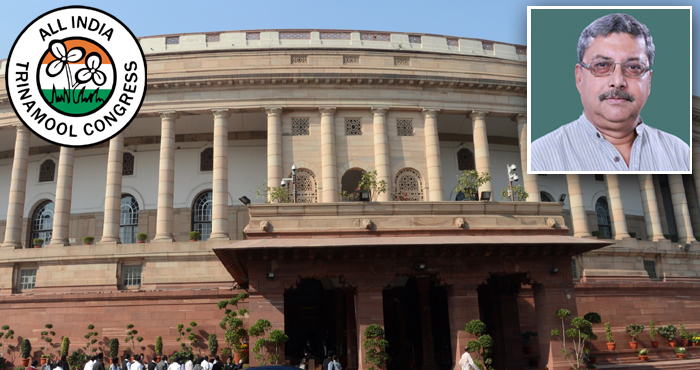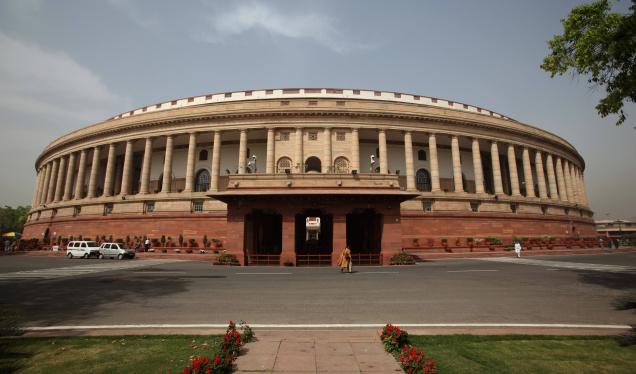Thank You, Deputy Speaker, Sir.
I am really sorry to inform this august House that this is an anti-labour Bill and slowly, and very intelligently, this government is interfering the federal structure of this country.
Sir, if you see sections 64 and 65, the entire power is rested with the State government to frame rules and the mechanism which is there under the Factories Act will be implemented through the state government officers.
Now see Sir, by this proposed amendment, under clause 3, sub-clause A, for the words ‘state government’ wherever they occur, the words ‘central government or as the case may be’ state government shall be substituted.
Therefore the primacies have been given to the central government and state government is coming later on. Earlier it was not there. Even in the Bill brought in 2014 it was not there. A new procedure is being adopted and this is an attempt to interfere with the federal structure. The Hon’ble Prime Minister speaks about cooperative federalism and here the central government is interfering with the federal structure.
Now ‘as the case may be’ has not been defining. Therefore if one day the central government feels that it will frame rules for a particular industry, they can do so; the powers of the state government will be diluted.
But the implementing agency will be all the chief inspectors. Responsibilities will be with all the inspectors. In case of any violation, the officers of the state government will have to face it. The sections 64 and 65, clause 3 sub-clause A hit the basic structure of the Factories Act itself.
Now I come to the second point regarding the increase of the overtime period, that is 50-100, and sections 65, 75-115. Therefore the overtime will be increased. At whose insistence it has been done? Who is asking for this? Who has said so?
We must not forget when the Factories Act came into force, the original Act passed in 1948, in the second paragraph of the object and reasons, says: “Scope: The proposed legislation differs materially from the existing law and several respects. Some of the important features are herein mentioned. Under that definition of factory in the Act of 1934, several undertakings are excluded from its scope but it is essential that important basic provisions relating to health, working hours, holidays, lighting and ventilation should be extended to all workplaces.”
Sir, let me give an example of a legislation about security measure, social measures – the Provident Fund Act. Nobody knows what is that amount of money that would be deducted. No worker wants it. Why has it been done? After retirement, he should lead a good life, he should get a lump sum amount.
If we read Section 51 of the Factories Act, it has been said there regarding working hours that ‘no adult shall be required or allowed to work more than 48 hours in any week.’ Why? To protect his health. A man may need money but the State is the guardian of the citizens. He has to bring social security laws to protect him. If overtime is allowed, it will adversely affect the health condition of workers.
Who has demanded this? Not a single worker has demanded this. This is a demand from industrialists who have access to the Honourable Ministers of the Central Government. Why so much work time? If indeed overtime is needed, why not create scope for new employment? Then overtime is not needed. Even overtime is needed for workers, which is perennial in character, then employment created, Sir. Give new employment.
Sir, I’ll give an example. In 1981, my second appointment was as a trainee labour employment officer in West Bengal. Sir, every day I used to see, a worker used to come to me and wanted to have overtime. But he was not in a position to do extra work. I said, how can you do more work after working eight to ten hours? Even one extra hour would affect your health. The question is not about giving them money for overtime. The State is the guardian. Parliament as a legislature must see that health conditions are protected.
The Honourable Labour Minister has referred to the International Labour Organisation’s (ILO) recommendations. I agree with you. But tell me, is the condition of any factory in Britain, America, Canada or Switzerland the same as here? Certainly the conditions are not the same. There a factory is like a corporate office. Here if you want to walk into a factory, you need to cover your nose with a handkerchief. Therefore ILO’s recommendations, which are not mandatory, differ from country to country. Our country doesn’t permit that. The factories in our country are not in that condition. Sir, in my constituency, there are so many jute mills. If anyone goes there, they would see the hazardous health conditions of the workers. ILO’s recommendations should not be extended to factories which are in this condition.
Sir, in the 3rd report of the Ministry of Labour Standing Committee in the Factories Amendment Bill, 2014, there was an observation in Part 2 (VI) regarding the overtime, in the second paragraph. I read it: “they therefore desire the Ministry to distinguish those industries/seasonal practice where increasing the overtime is inevitable and make necessary amendment in the related clause with adequate safeguards so that unemployment problems is not aggravated.”
So our Standing Committee has taken care of distinguish those industries. First you identify the industries, it is inevitable, you cannot do it. Adequate safeguards are necessary, so that the problem of unemployment is not aggravated. If you continue with overtime, then new employment scope will not be there.
Therefore this is a Bill, which I oppose. It is anti-labour and is hitting the basic federal structure. Sir, I have a real question, at whose pressure are you bringing this Bill? Why are you in a hurry? This Bill was pending since 2014 Bill. Now in our country, a group of industrialists have become very powerful. Under their pressure so many Bills are being brought. Is it the pressure of industrialists from Gujarat? Is it the pressure of industrialists in Maharashtra? Is it the pressure of industrialists from Madhya Pradesh? Not a single worker or trade union of West Bengal speaks of the increase in overtime in this way.
I am shocked. I have 35 years experience working in labour and service matters. And I go to other states like Jharkhand; nobody wants this Bill. So under whose pressure are they working? Sir, MPs are asked to work till nine o’clock everyday, after three days, you will see that 50% MPs are not here.
Therefore by this process kindly do not bring in Bill. This Bill signifies a new process, a new idea, a new innovation of the Modi Government to interfere with the federal structure of this country. Therefore, I say this is an anti-labour Bill.
Thank you Sir, for giving me time to speak.


